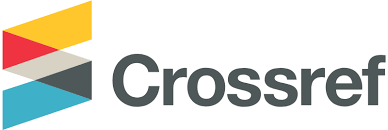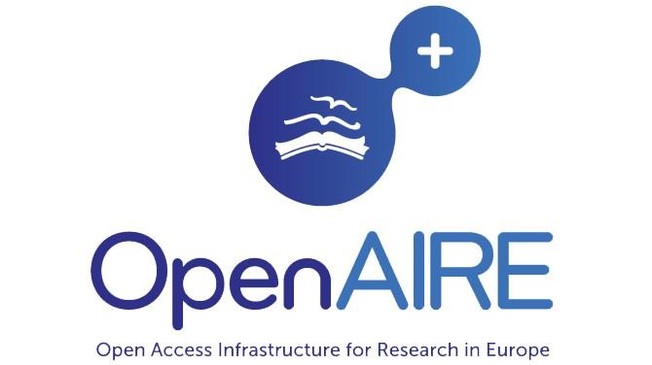PENERAPAN E-PROJECTS BERBANTUAN NANO LEARNING PHYSICS UNTUK MENINGKATKAN PROBLEM SOLVING SKILLS PADA KONSEP ENERGI ALTERNATIF
DOI:
https://doi.org/10.21009/03.1201.PF26Abstract
Abstrak
Kemajuan ilmu pengetahuan dan teknologi pada abad ke-21 menuntut masyarakat dunia untuk memiliki keterampilan proses sains dan keterampilan kognitif tingkat tinggi. Studi dari Trends in International Mathematics and Science Study (TIMSS) tahun 2015 menunjukkan bahwa Indonesia berada pada urutan ke-46 dari 51 negara dengan skor rata-rata 397. Artinya, nilai sains siswa Indonesia berada pada level yang sangat rendah. Pada abad ini, pembelajaran sains membutuhkan model pembelajaran yang lebih efisien, yaitu pembelajaran berbasis e-project. Dengan model pembelajaran ini, peserta didik berperan aktif dalam menggunakan pengetahuan dan keterampilan ilmiah. Keterampilan pemecahan masalah terus menjadi kapabilitas utama dalam menghadapi pembelajaran sains di abad 21. Dalam mengembangkan keterampilan ini, peserta didik harus mempunyai pemikiran analitis dan pemikiran kritis agar bisa memecahkan suatu masalah. Berdasarkan hal itu, metode yang digunakan dalam penelitian ini adalah quasi eksperimental dengan desain The Nonequivalent Control Group Design. Penelitian ini bertujuan untuk meneliti penerapan e-projects berbantuan nano learning physics pada konsep energi alternatif sebagai model pembelajaran efektif yang dapat membantu meningkatkan problem solving skills pada peserta didik. Penelitian yang dilakukan masih dalam proses dan terus berlanjut.
Kata-kata kunci: E-projects, Keterampilan pemecahan masalah, Pembelajaran sains abad 21.
Abstract
Advances in science and technology in the 21st century require the world community to have high-level scientific process skills and cognitive skills. A study from the 2015 Trends in International Mathematics and Science Study (TIMSS) shows that Indonesia ranks 46th out of 51 countries with an average score of 397. This means that Indonesian students science scores are at a very low level. In this century, science learning requires a more efficient learning model, namely e-project based learning. With this learning model, students play an active role in using scientific knowledge and skills. Problem solving skills continue to be the main capability in dealing with science learning in the 21st century. In developing these skills, students must have analytical thinking and critical thinking in order to be able to solve a problem. Based on that, the method used in this research is quasi-experimental with The Nonequivalent Control Group Design. This study aims to examine the application of e-projects assisted by nano learning physics on the concept of alternative energy as an effective learning model that can help improve problem solving skills in students. Research conducted is still in process and continues.
Keywords: E-projects, Problem solving skills, 21st century science learning.
References
[2] N. Balemen, M. Özer Keskin, “The effectiveness of Project-Based Learning on science education: A meta-analysis search,” International Online Journal of Education and Teaching, vol. 5, no. 4, pp. 849-865, 2018, [Online]. Available: http://iojet.org/index.php/IOJET/article/view/452/297.
[3] Kemendikbud, “Studi Internasional Trends in International Mathematics and Science Study (TIMSS),” 2022, pusmendik.kemendikbud.go.id.
[4] A. M. H. Bani-Hamad, A. H. Abdullah, “The Effect of Project-Based Learning to Improve the 21 st Century Skills among Emirati Secondary Students The Effect of Project-Based Learning to Improve the 21 st Century Skills among Emirati Secondary Students,” International Journal of Academic Research in Business and Social Sciences, vol. 9, no. 12, pp. 560-573, 2014, doi: 10.6007/IJARBSS/v9-i12/6749.
[5] M. H. Shin, “Effects of Project-based Learning on Students’ Motivation and Self-efficacy,” English Teaching, vol. 73, no. 1, pp. 95-114, 2018, doi: 10.15858/engtea.73.1.201803.95.
[6] I. J. Nurhidayah, F. C. Wibowo, I. M. Astra, “Project Based Learning (PjBL) learning model in science learning: Literature review,” Journal of Physics: Conference Series, vol. 2019, no. 1, 2021, doi: 10.1088/1742-6596/2019/1/012043.
[7] Astalini et al., “Identification of Student Attitudes toward Physics Learning at Batanghari District High School,” The Educational Review, vol. 2, no. 9, pp. 475-484, 2018, doi: 10.26855/er.2018.09.003.
[8] M. Baran, A. Maskan, S. Yasar, “Learning physics through project-based learning game techniques,” International Journal of Instruction, vol. 11, no. 2, pp. 221-234, 2018, doi: 10.12973/iji.2018.11215a.
[9] J. R. Batlolona et al., “The improvement of problem-solving skills and physics concept mastery on temperature and heat topic,” Jurnal Pendidikan IPA Indonesia, vol. 7, no. 3, pp. 273-279, 2018, doi: 10.15294/jpii.v7i3.12432.
[10] J. Park, J. Song, “How Is Intuitive Thinking Shared and Elaborated During Small-Group Problem-Solving Activities on Thermal Phenomena?,” Research in Science Education, vol. 50, no. 6, pp. 2363-2390, 2020, doi: 10.1007/s11165-018-9784-x.
[11] Yuberti et al., “Approaching problem-solving skills of momentum and impulse phenomena using context and problem-based learning,” European Journal of Educational Research, vol. 8, no. 4, pp. 1217-1227, 2019, doi: 10.12973/eu-jer.8.4.1217.
[12] K. Chusinkunawut et al., “Problem solving ability assessment based on design for secondary school students,” International Journal of Innovation in Science and Mathematics Education, vol. 26, no. 3, pp. 1-20, 2018.
[13] N. Harefa, L. S. L. Purba, “Problem solving skills improvement and the impact on students’ learning outcomes: Learning based e-project,” Journal of Physics: Conference Series, vol. 1567, no. 2, 2020, doi: 10.1088/1742-6596/1567/2/022038.




